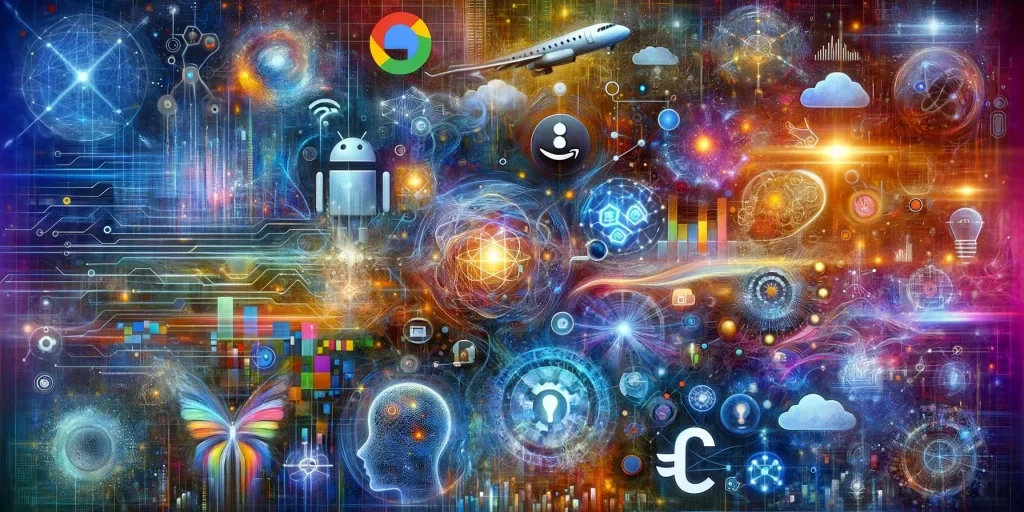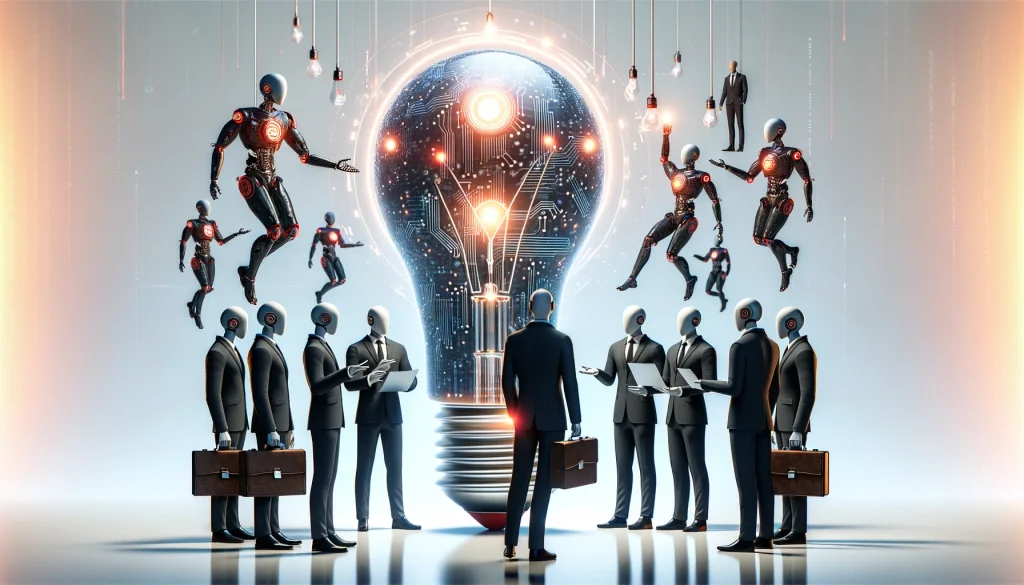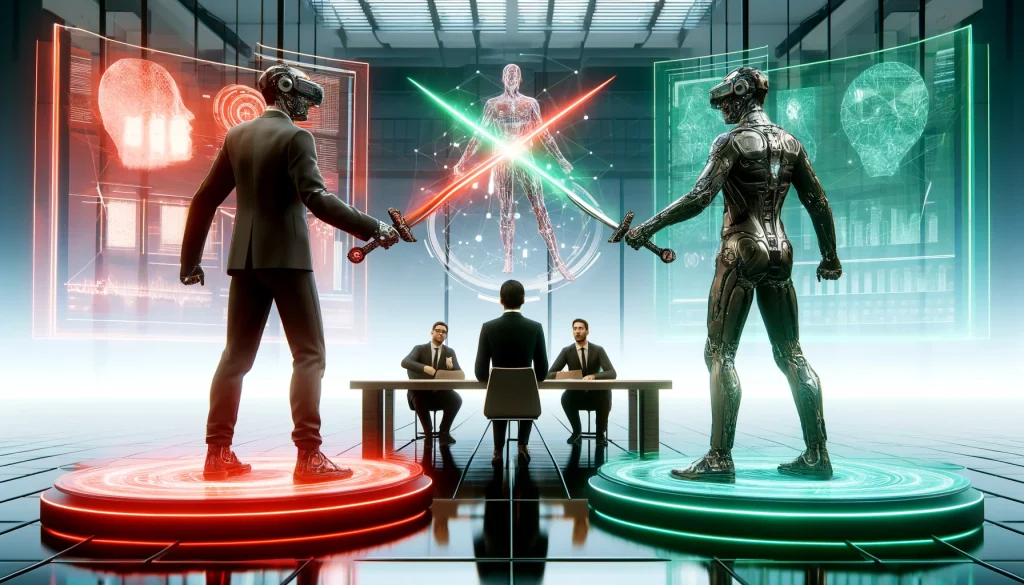
The Evolution of AI: Giants of Innovation
Posted March 25, 2024 by Kevin Chern
The journey through the evolution of Artificial Intelligence (AI) products by leading tech giants such as Microsoft, Google, Amazon, OpenAI, and Tesla unveils a narrative of relentless pursuit, innovation, and occasionally, collaboration that has significantly shaped the digital era. Each entity, with its unique approach and strategic investments, has contributed to the development of AI technologies that now underpin many aspects of our daily lives, from search engines and digital assistants to autonomous vehicles and beyond.
Microsoft: Pioneering Intelligent Frameworks
Microsoft’s foray into AI dates back to the early 1990s, with its research division laying down the groundwork for many AI advancements. The company’s significant stride was the introduction of Azure AI, a collection of AI services designed for developers and companies to build AI solutions seamlessly. Azure AI encompasses various tools for machine learning, cognitive services (including vision, speech, and language processing), and autonomous systems. Microsoft’s partnership with OpenAI, highlighted by their exclusive licensing of GPT-4 (and its predecessors), underscores their commitment to leading in AI-powered natural language processing and generative AI technologies.
Google: From Search to AI First
Google’s AI journey began with its search engine but quickly evolved into a broader ambition with the establishment of Google Brain in 2011. DeepMind’s acquisition in 2014 further solidified Google’s AI prowess, leading to the development of AlphaGo and advancements in deep learning. Google AI now encompasses a wide range of products and services, including TensorFlow, an open-source machine learning platform, and various AI-driven applications like Google Assistant, Google Translate, and generative AI tools for content creation and data analysis. Most recently, DeepMind and GoogleBrain have announced the launch of Gemini, Google’s multimodal platform that allows it to process multiple types of data simultaneously, including video, text, images, audio and computer code.
Amazon: AI for Every Aspect of Life
Amazon has woven AI deeply into its operations, most notably through its personal assistant, Alexa, which became the face of Amazon’s AI endeavors. Beyond Alexa, Amazon Web Services (AWS) offers a broad suite of AI and machine learning services under Amazon AI, catering to businesses and developers. These include Amazon SageMaker for building and deploying machine learning models, and Rekognition for visual analysis. Amazon’s AI is not just about consumer-facing products; it’s integral to their logistics, recommendation systems, and cloud computing services.
OpenAI: Democratizing AI
OpenAI, initially established as a non-profit research company with the mission to ensure AI benefits all of humanity, has been at the forefront of breakthroughs in AI. Its transition to a capped-profit model allowed it to scale its ambitions, leading to the development of advanced language models like GPT (Generative Pretrained Transformer) series. OpenAI’s products, particularly GPT-3, have set new standards for natural language processing capabilities, enabling a wide range of applications from automated content creation to complex problem-solving tools.
Tesla: AI on the Move
Tesla, under the visionary leadership of Elon Musk, has taken a unique path in AI development, focusing on autonomous vehicles. Tesla’s Autopilot and Full Self-Driving (FSD) systems represent some of the most advanced real-world applications of AI, relying on machine learning, computer vision, and data processing from millions of miles of driving data. Tesla’s AI endeavors extend beyond vehicles, touching upon robotics and potentially, AI-powered energy solutions.
Distinctions Among Generative AI Products
Each of these companies has developed generative AI products with distinct characteristics:
– Microsoft leverages its AI for cloud services, offering sophisticated AI tools that integrate with its existing software ecosystem.
– Google focuses on accessibility and open-source technologies, making its AI tools widely available to developers.
– Amazon integrates AI into consumer and business applications, emphasizing usability and integration with Amazon’s vast e-commerce and cloud infrastructure.
– OpenAI stands out for its ethical approach and groundbreaking work in natural language processing, with GPT-3 being a flagship product.
– Tesla uniquely applies AI to the physical world of autonomous driving, pushing the boundaries of AI’s capabilities in real-time decision-making.
Competitive Landscape: Who Leads the AI Race?
Determining the leader in the AI space is complex, as it depends on the criteria used—be it innovation, market penetration, product diversity, or impact. OpenAI’s GPT-4 has revolutionized how we think about natural language processing and generative AI, capturing much attention from developers and businesses. Google’s comprehensive AI solutions and TensorFlow platform have made it a cornerstone of AI development and research. Meanwhile, Microsoft’s Azure AI and its strategic partnership with OpenAI position it strongly in offering AI solutions to businesses.
Amazon’s Alexa and AWS AI services have made significant inroads into consumer and enterprise applications, respectively. Tesla’s focused application of AI in autonomous vehicles presents a different kind of leadership, one that directly challenges traditional industries.
The competitive landscape in AI is as dynamic as the technology itself. While OpenAI has recently been in the spotlight for its innovative generative AI models, Google and Microsoft have entrenched positions in both the research community and enterprise solutions. Amazon leads in integrating AI into everyday consumer experiences and cloud computing, whereas Tesla advances AI in mobility and autonomy. As these companies continue to push the boundaries of AI, the real winners are the users who benefit from the ever-expanding possibilities of AI technologies. What new AI application excites you the most for the future?

Explore Our Library
Knowledge is power
















